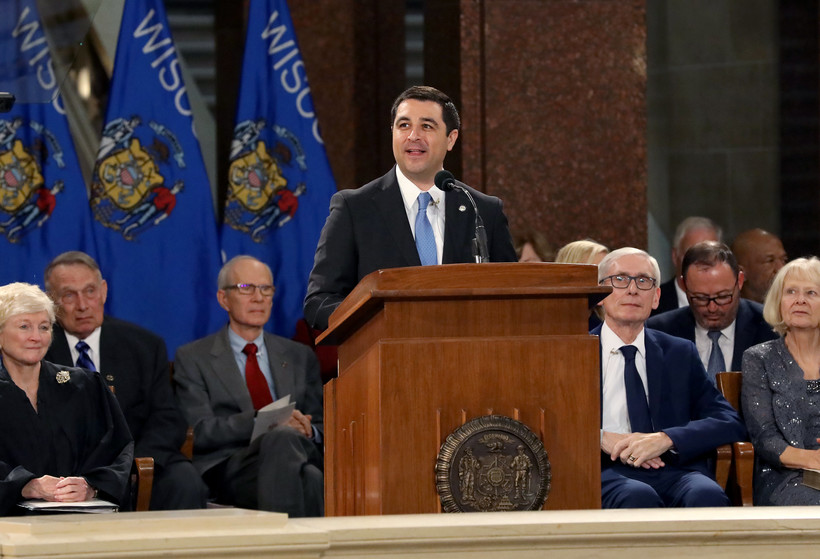Wisconsin Attorney General Josh Kaul Joins Crackdown On Robocalls
Americans received about 4.6 billion robocalls per month in 2025.

Josh Kaul. Photo by Coburn Dukehart/Wisconsin Center for Investigative Journalism (CC BY-ND 2.0)
Thirty-seven telecoms companies received warnings from a confederation of attorneys general, including Wisconsin Attorney General Josh Kaul, in an effort to crack down on robocalls.
As part of their “Operation Robocall Roundup,” attorneys general from 50 states and the District of Columbia demanded phone providers take steps to mitigate the use of robocalling on their networks.
Those steps include filing a plan for complying with the Federal Communications Commission’s requirements around robocalls, broadly defined as phone calls coming from a nonhuman dialer, often with a prerecorded message.
The participating AGs are part of a multistate Anti-Robocall Litigation Task Force, which launched in 2022. The task force’s stated goal is to investigate and take legal action against both perpetrators of robocalls and providers that don’t take steps to remove those bad actors from their systems.
So far this year, Americans have received about 4.6 billion robocalls per month, according to Alex Quilici, CEO of YouMail, a company that sells robocall-blocking software and tracks data relating to the issue.
In a statement, Kaul called robocalls “irritating.”
But robocalls can take many forms, Quilici said. Some are mundane, like reminders from your dentist’s office about an upcoming appointment.
About 2.6 billion of those monthly robocalls, though, are unwanted, Quilici said. Some are frustrating, like promotions from telemarketers. They can also be malicious — and illegal, such as attempts from scammers trying to steal personal information or money.
“They run the gamut in terms of how annoying and how dangerous they are,” he said.
Wisconsinites are also likely familiar with election-related robocalls. These can come from campaigns, which themselves must follow specific rules, but they might also come from bad actors attempting to spread misinformation to voters.
Lawmakers have attempted to crack down on the issue at the state and federal level, by targeting both callers and telecoms providers. Last year, the Wisconsin state Legislature passed a law that targets people who place “spoofed” calls — calls that knowingly use inaccurate caller ID information to misrepresent who they are.
Nationally, Congress has passed several laws aimed at strengthening the FCC’s power to crack down on robocallers. That includes the 2019 TRACED Act, which, among other requirements, compels telecoms providers to authenticate calls at the start of the network, in an effort to reduce call spoofing.
Wisconsin Attorney General Josh Kaul, 50 others file complaint letters over robocalls was originally published by Wisconsin Public Radio.
If you think stories like this are important, become a member of Urban Milwaukee and help support real, independent journalism. Plus you get some cool added benefits.






















Hooray!!